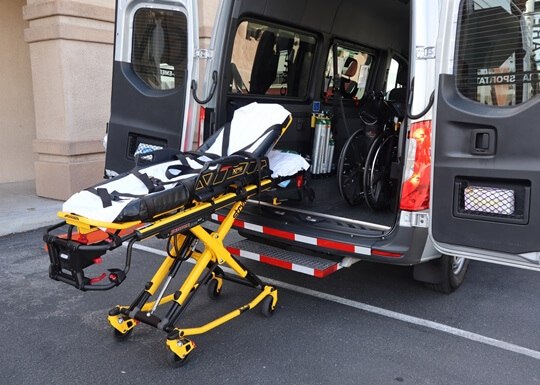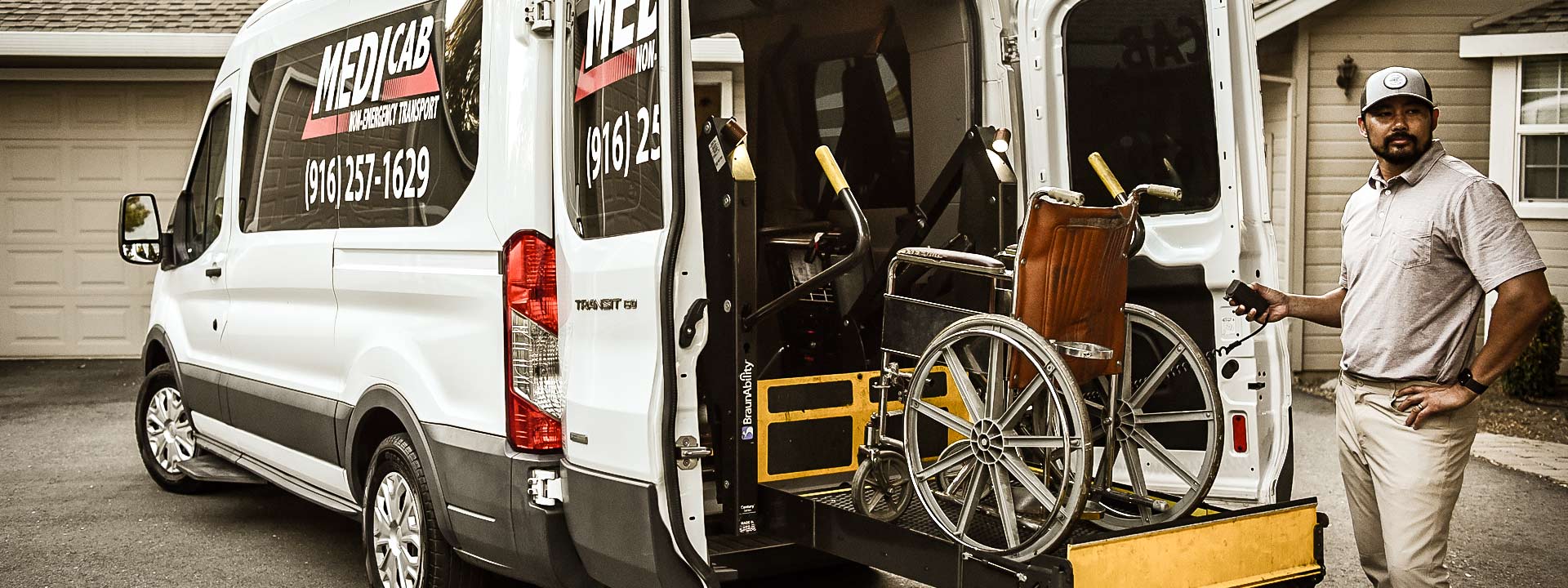Boost Access with Specialist Medical Transportation Services Near Me
Boost Access with Specialist Medical Transportation Services Near Me
Blog Article
Available and Affordable Medical Transportation Options for Seamless Wellness Assistance
In the realm of medical care, the availability and cost of medical transport are vital in ensuring individuals can access the care they require when they need it. The capacity to perfectly navigate transportation choices can considerably influence an individual's ability to get timely clinical attention, follow-up treatment, and general health. From non-emergency clinical transportation solutions to innovative options like telehealth, the landscape of clinical transportation is advancing to meet the varied demands of people. Taking into consideration the value of this facet in health care distribution, exploring the selection of choices available ends up being important for addressing spaces in access and affordability.
Non-Emergency Medical Transport Provider

These solutions are staffed by skilled specialists who prioritize person convenience and safety during transit. Chauffeurs are geared up to manage people with differing clinical demands and ensure that all journeys are smooth and stress-free - Medical Transportation Services Near Me. Furthermore, non-emergency medical transportation services typically use specific cars that are wheelchair-accessible, making them ideal for a vast array of people with various flexibility needs
Volunteer Vehicle Driver Programs
Volunteer vehicle driver programs contribute in giving transport help for people in demand of non-urgent clinical care. These programs rely on the kindness of volunteers that donate their time and automobiles to assist transport patients to and from clinical visits. By utilizing volunteer chauffeurs, organizations can use an economical solution for people who may not have access to dependable transport.
Among the crucial benefits of volunteer driver programs is the individualized treatment and interest that clients obtain. Unlike standard transportation solutions, volunteer motorists often create a connection with the people they help, creating a helpful and compassionate atmosphere during what can be a difficult time. Furthermore, volunteer chauffeur programs can aid connect the void for individuals staying in rural or underserved areas where mass transit choices might be limited.
Mass Transit Options

Among the essential benefits of public transport is its prevalent availability in metropolitan and country locations alike. This comprehensive network enables patients from diverse histories to take a trip to clinical appointments with family member convenience. Additionally, public transport systems are often furnished to suit individuals with handicaps, providing easily accessible travel choices for those with wheelchair obstacles.

Ride-Sharing and Transportation Network Business
The advancement of modern-day transport alternatives for medical functions prolongs beyond standard public systems like trains and buses to encompass the innovative realm of ride-sharing and transportation network companies. Ride-sharing services such as Uber and Lyft have actually reinvented the way people travel to medical visits, offering ease and adaptability to people who may not have accessibility to their vehicles or standard public transport. These platforms allow users to ask for an adventure with the touch of a switch on their mobile phones, supplying door-to-door service that can be particularly useful for individuals with mobility obstacles or those requiring assistance.
Transportation network business (TNCs) have additionally played a substantial function in linking the void in medical transportation solutions. Business like Veyo and RoundTrip specialize in non-emergency clinical transport, providing to individuals who need a greater level helpful throughout their journeys to clinical facilities. By partnering with medical care companies and insurance companies, TNCs guarantee that patients can access trustworthy and timely transport solutions, eventually adding to boosted wellness outcomes and individual fulfillment.
Telehealth and Digital Examinations
Enhancing healthcare availability and comfort, telehealth and virtual examinations have actually become critical elements in modern clinical practices, changing the way individuals connect with health care providers. Telehealth leverages innovation to assist in remote interaction in between people and medical care experts, using a read this article broad variety of see here now solutions such as virtual examinations, remote surveillance, and digital prescriptions. Virtual assessments make it possible for individuals to seek medical recommendations, medical diagnosis, and therapy from the convenience of their homes, eliminating the requirement for physical brows through to healthcare facilities. This method not only saves time and decreases transportation expenses for people however additionally boosts the total efficiency of medical care delivery.
Furthermore, telehealth plays a vital function in extending clinical services to underserved communities, backwoods, and people with limited mobility. By damaging down geographical barriers and enhancing healthcare outreach, telehealth advertises very early treatment, continuity of treatment, and client engagement. As modern technology remains to breakthrough, telehealth is poised to play a progressively significant function fit the future of medical care shipment, promoting improved wellness outcomes and person satisfaction.
Conclusion

From non-emergency medical transport services to ingenious solutions like telehealth, the landscape of clinical transportation is evolving to meet the varied requirements of patients.Non-Emergency Medical Transport Provider help with the prompt and risk-free transport of individuals calling for non-urgent medical treatment to and from healthcare facilities.The evolution of contemporary transport options for clinical purposes prolongs past standard public systems like trains and buses to encompass the ingenious world of ride-sharing and transportation network business.Transport network companies (TNCs) have additionally played a substantial role in connecting the void in clinical transportation services. Non-Emergency Medical Transportation Solutions, Volunteer Driver Programs, Public Transportation Options, Ride-Sharing and Transport Network Firms, and Telehealth and Virtual Consultations all play a critical function in addressing transportation obstacles to health care gain access to.
Report this page